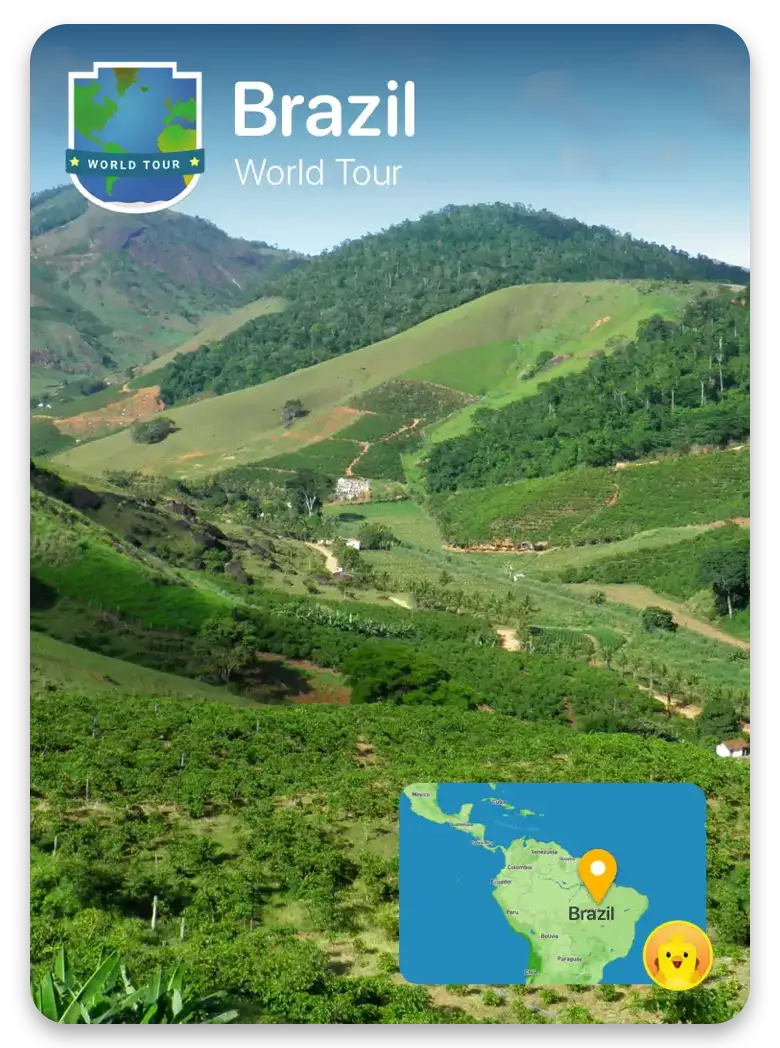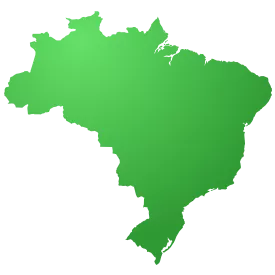Brazil
Discover Brazil
Currency
Real
Capital
Brasília
Fun Foods
Feijoada, Pão de queijo, Churrascaria, Brigadeiro
Portugal discovered Brazil by getting completely lost. In 1500, explorer Pedro Álvares Cabral was sailing to India when he accidentally hit South America instead. That navigation mistake created the biggest country in South America.
Indigenous people like the Tupi and Guarani had been living there for thousands of years already. They grew cassava, hunted in the rainforest, and knew every plant and animal.
Portugal colonized Brazil and took indigenous land. The colony lasted over 300 years. Starting in the 1530s, the Portuguese forced millions of enslaved Africans to work on sugar plantations.
In 1822, Brazil got independence without a revolution. The Portuguese king's son, Dom Pedro I, was supposed to go back to Portugal. Instead, he declared Brazil independent. His dad was furious.
But Brazil didn't free enslaved people when they became independent. Slavery continued for another 66 years. Brazil finally abolished it in 1888, making them the last country in the Americas to end slavery.
During slavery, Africans created capoeira. It looks like a dance with flips and kicks, but it's actually a martial art. Slaveholders banned fighting, so people disguised it as dancing to survive.
Today, Brazil's mix of indigenous, African, and Portuguese cultures makes it incredible to visit. In Rio de Janeiro, ride the cable car up Sugarloaf Mountain for views that'll make your stomach drop. See Christ the Redeemer, the giant statue with open arms on top of Corcovado Mountain.
Iguazu Falls has 275 waterfalls crashing down at once. You can take a boat right under them and get completely soaked. In the Amazon rainforest, go piranha fishing and learn how indigenous guides track jaguars.
Brazilians know how to celebrate. Carnival happens every year before Lent starts. In Rio, samba schools spend months making costumes covered in feathers and sequins. At the Sambódromo, thousands of dancers and musicians parade for hours while millions watch.
Feijoada is the national dish. It's black beans cooked with pork, beef, and sausage, served over rice.
Pão de queijo are cheese bread balls that are so addictive you can't eat just one. Brigadeiro are chocolate truffles rolled in sprinkles. Kids lose their minds over these.
If you go to a churrascaria, you'll eat skewers of beef, chicken, and sausage until you can't move.


Experience Points


XP EARNED OUT OF 0
Points Breakdown
| Sticker Collected | 0 XP |
| Card Collected | 0 XP |
| Bonuses | 0 XP |
| Total | 0 XP |
Your travel history

First Visit
---
Last Visit
---
You've logged 0 visits.



.webp)

